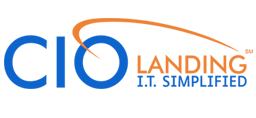Fact Checking Sites
FACT CHECKING SITES:
- https://www.factcheck.org – a nonprofit non-partisan website, describes itself as a “consumer advocate for voters.” It aims to reduce the level of deception and confusion in U.S. politics. It is a project of the Annenberg Public Policy Center of the Annenberg School for Communication at the Univ. of PA and is funded primarily by the Annenberg Foundation. FactCheck.org has won four Webby Awards in the Politics category.
- https://www.politifact.com – a fact-checking website that rates the accuracy of claims by elected officials and others on its Truth-O-Meter.
- https://mediabiasfactcheck.com – The most comprehensive media bias resource on the internet; dedicated to educating the public on media bias and deceptive news practices.
- https://toolbox.google.com/factcheck/explorer – consists of two tools: Fact Check Explorer and Fact Check Markup Tool. Both tools aim to facilitate the work of fact checkers, journalists and researchers.
- https://www.hoax-slayer.net – makes the Internet safer, more pleasant and more productive by: Debunking email and Internet hoaxes; Thwarting Internet scammers; Educating web users about email and Internet security issues; Combating spam
- https://www.truthorfiction.com – a non-partisan website where Internet users can quickly and easily get information about eRumors, fake news, disinformation, warnings, offers, requests for help, myths, hoaxes, virus warnings, and humorous or inspirational stories that are circulated by email.
- https://sunlightfoundation.com – Making gov’t & politics more accountable & transparent
COVID-19 FACTS:
MYTH: COVID-19 mainly affects older people. Anyone can become infected with COVID-19; however, older people, infants, individuals with weak immune systems or those with pre-existing medical conditions (such as diabetes and heart disease) are most at risk of becoming severely ill once infected.
MYTH: There are no effective preventive measures. Emphasize basic health precautions, especially frequent handwashing with soap and water or alcohol-based gels in addition to drying your hands with a paper towel or air dryer is an effective method to prevent the spread of COVID-19. Ultraviolet lamps shouldn’t be used to kill the SARS-CoV-2 virus. It causes skin irritation.
MYTH: It’s easy to become infected with COVID-19 on an airplane. The transmission of respiratory diseases on aircraft is uncommon, as recirculated air moves through several HEPA (High-Efficiency Particulate Air) filters, and cabin air circulation is limited to specific zones or areas of the aircraft. However, some evidence suggests that a symptom-free passenger in an aircraft sitting within two rows of a contagious passenger for a flight time of more than eight hours may become infected with a respiratory disease.
MYTH: It’s unsafe to receive packages from China. This is untrue. It is safe to receive packages from China, as the SARS-CoV-2 virus does not survive for long when in contact with objects such as letters and parcels. Additionally, pet owners have had concerns about the COVID-19 spreading to their pets. There is no evidence that pets spread the COVID-19 or can be infected with the virus. Always remain vigilant and exercise basic health precautions to prevent the spread of E. coli and salmonella, which are known diseases that spread between pets and humans.
MYTH: Vaccines used to protect against pneumonia will protect you from COVID-19.
Vaccines such as pneumococcal and Hemophilus influenza type B (Hib)will not offer the same protection against pneumonia caused by COVID-19. Furthermore, antibiotics are also ineffective in the treatment of COVID-19, since the disease is a viral infection, and antibiotics are used to treat bacterial infections. To date, there is no specific medicine on the market targeted to treat COVID-19, but the symptoms (fever, fatigue, cough, difficulty breathing, sometimes worsening to pneumonia and kidney failure) will be treated with the appropriate medication.
MYTH: Surgical masks will protect you from catching the virus. Wearing a surgical mask is only recommended for individuals who are sick with COVID-19 and those attending to a sick person. The mask should be worn in combination with frequently washing hands with soap and water or alcohol-based gels. The mask limits the spread of COVID-19 through coughing and sneezing, as well as mouth- or nose-to-hand contact. On average, individuals touch their faces 23 times per hour, increasing the spread of respiratory illness. Sick individuals should know how to correctly wear and dispose of a surgical mask and not reuse single-use masks. WHO has a how-to video for mask use.
MYTH: Thermal surveillance is ineffective in detecting people vulnerable to COVID-19.
Thermal scanners are currently implemented by several airports and border crossings to detect vulnerable individuals and are used to detect individuals that have developed a high fever (above the normal body temperature of 37 degrees Celsius). However, these scanners are unable to detect if an individual is infected with COVID-19 but has not developed any symptoms yet, especially because the incubation phase is 2-10 days following exposure. However, since it is easy to catch a respiratory disease while transiting through an airport due to the large amount of people, transiting as quickly as possible through an airport is recommended.
Stay Informed with Reliable Sources
To keep updated with the current COVID-19 outbreak with reliable and accurate resources, only follow information provided by the WHO, CDC, and relevant country health departments. Stay up-to-date with our COVID-19 and SARS-CoV-2 Information Hub.
Our advice to travelers is to emphasize basic health precautions, especially frequent handwashing with soap and water or an alcohol-based hand sanitizer if soap and water are unavailable. As the Coronaviridae family is zoonotic, it is essential to avoid close contact with animals (dead or alive), especially at wet markets (i.e. an outdoor marketplace where fresh vegetables, live animals such as poultry, fish, pigs, and wild animals are sold).
